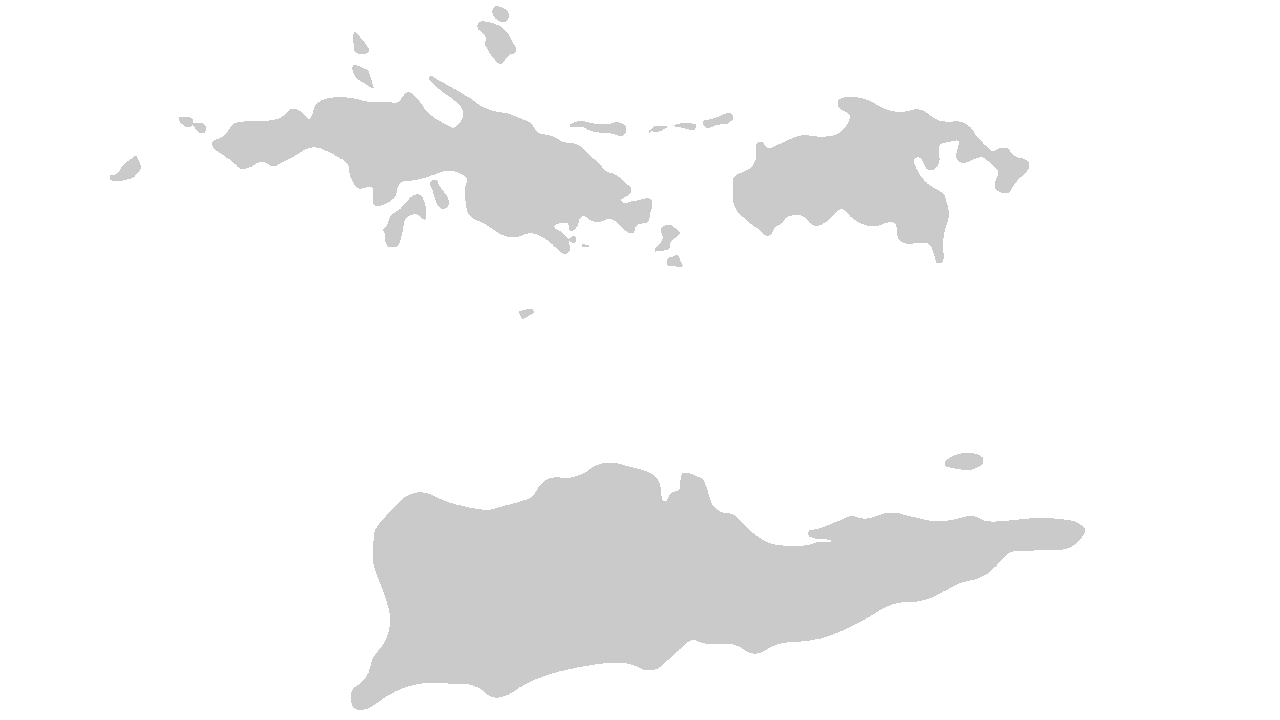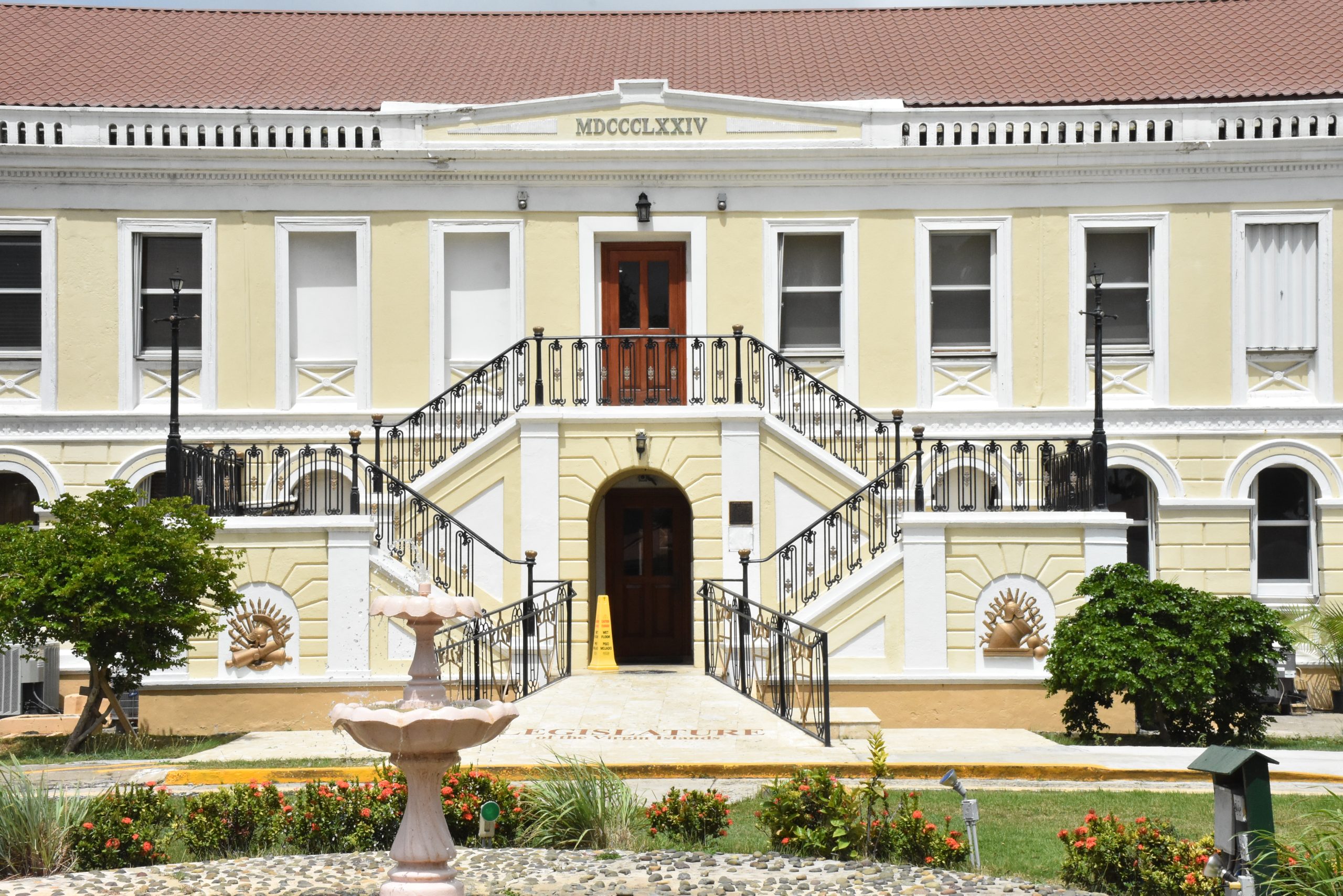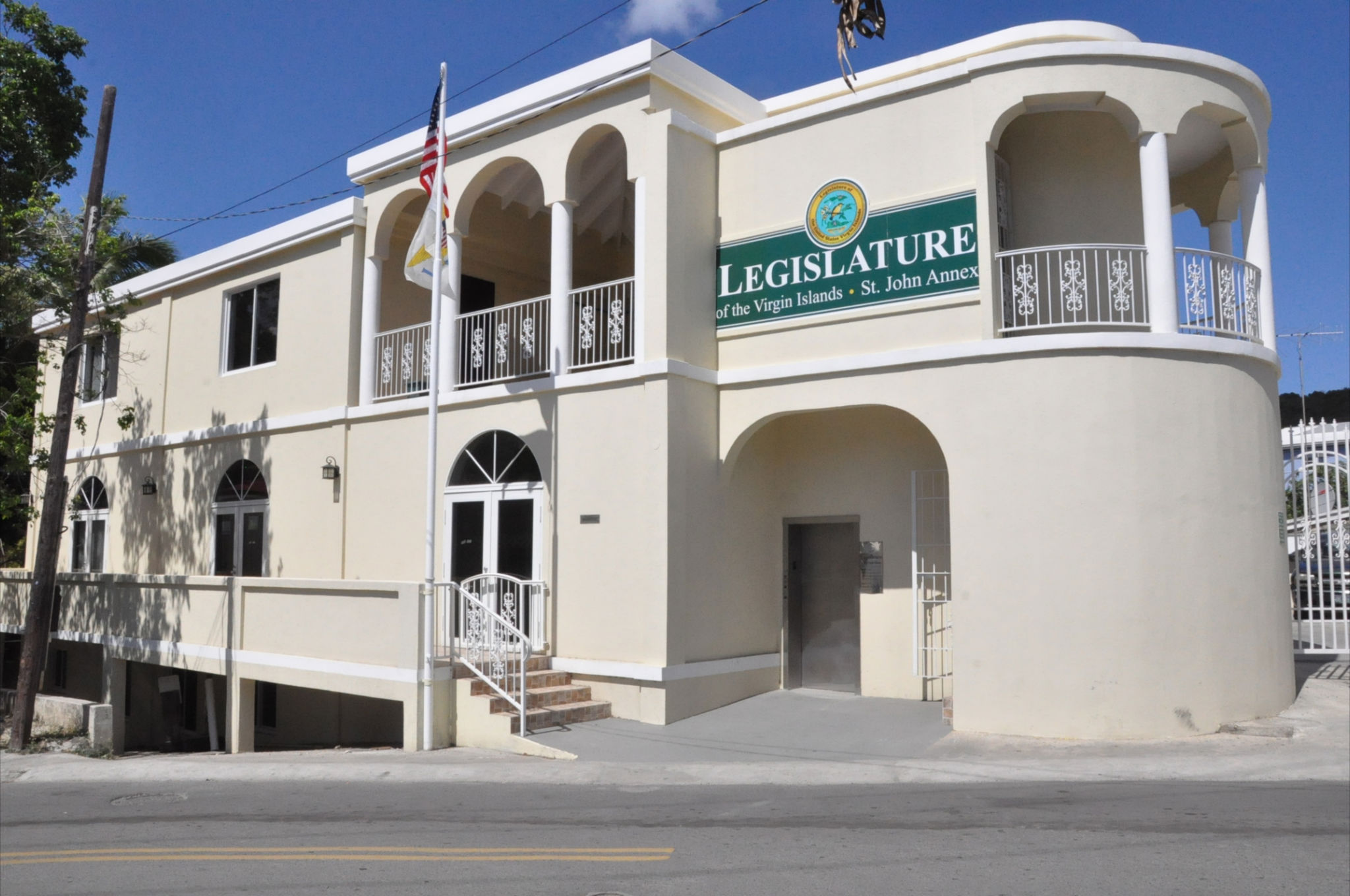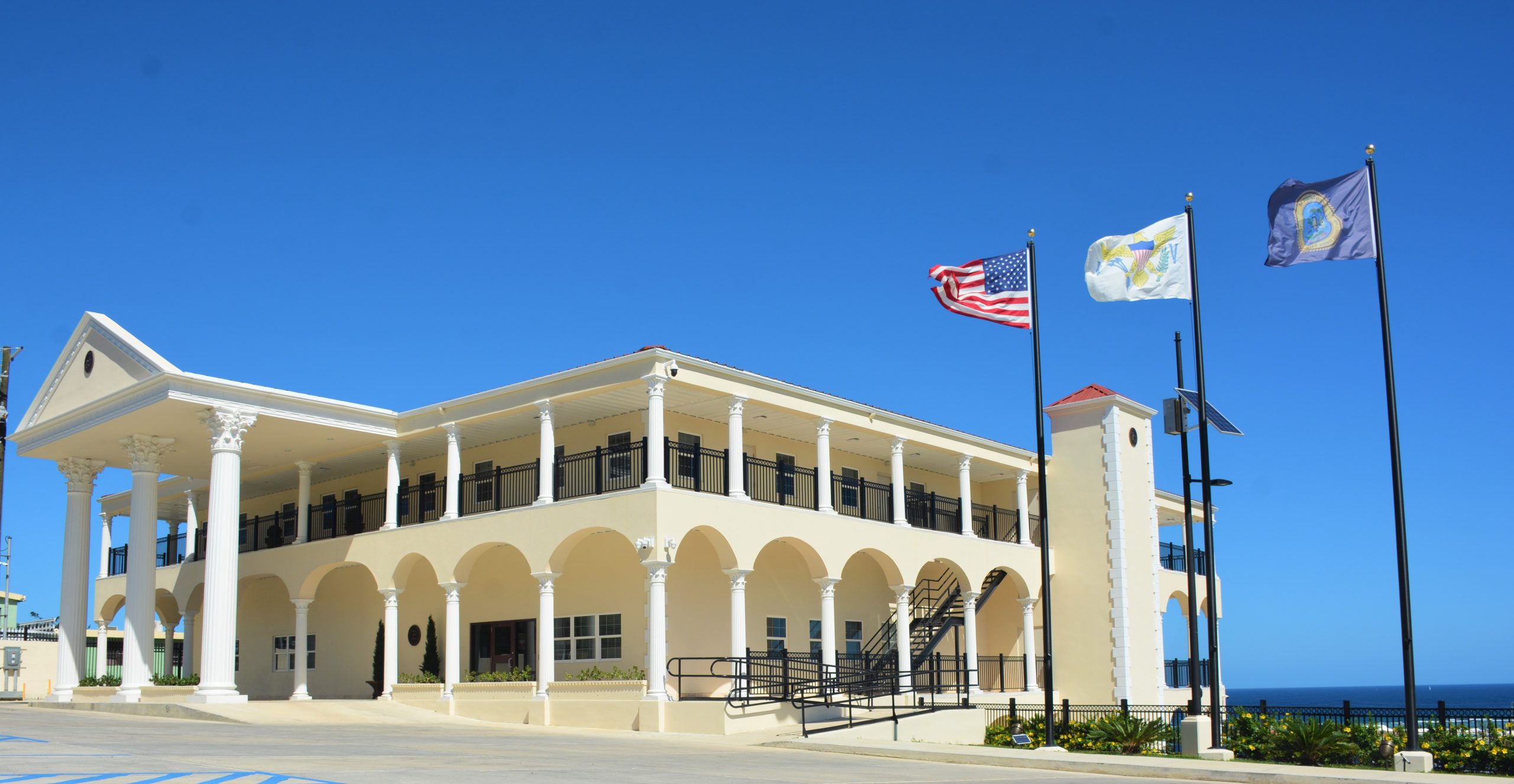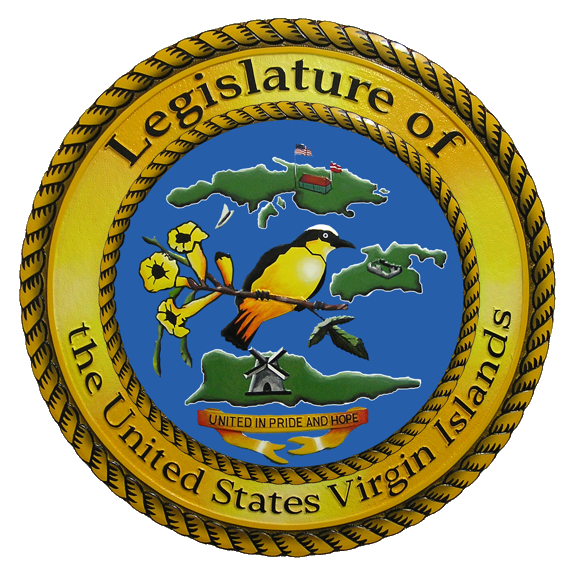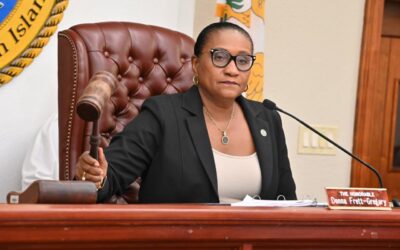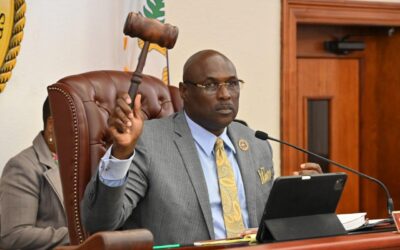ST. THOMAS – The Committee on Budget, Appropriations, and Finance, led by Senator Donna A. Frett-Gregory, convened a meeting at the Earle B. Ottley Legislative Hall regarding the proposed Fiscal Year 2024 Executive Budget for the Government of the Virgin Islands of the United States. Lawmakers received testimony concerning the budgets of the Virgin Islands Fire and Emergency Medical Services, Election Systems of the Virgin Islands, and the Virgin Islands Bureau of Motor Vehicles.
In block one, Daryl George, the Director of the Virgin Islands Fire and Emergency Medical Services delivered testimony. The department has 319 employees organized into units and specialized divisions. These include the suppression unit, the EMS Unit, the Arson Investigation and prevention unit, the administrative unit, and the maintenance division. 137 employees are in the St. Thomas – St. John District. 104 are in the St. Croix district. The proposed budget for the department totals $33,483,806 from the General Fund. Most of the funds, 97%, will be used for personnel costs. The remaining 3% will be used for utilities, supplies, and other services. In addition to the budget request from the General Fund, it will be supplemented by non-appropriated funds, which are expected to total $3,503,268 in Fiscal Year 2024. Non appropriated funds include the fire and emergency Medical Services Fund and Emergency Services Fund.
The Fire and Emergency Medical Services Fund is a special fund consisting of fees collected for emergency medical services, fire safety inspections, permits, and other services, and fines assessed for code violations. The projection for the fund for Fiscal Year 2024 is $2,837,690. The Emergency Services Find consists of emergency surcharges collected from users of mobile and landline phones and is shared by VIFEMS, the Department of Health, and the Virgin Islands Territorial Emergency Management Agency. It is expected that $665,578 of the fund will be available for use by VIFEMS in Fiscal Year 2024. The department has also actively sought out grants to address the gaps between local funding and operational needs. Funding has been secured from the United States Department of Agriculture’s Forest Service, the Federal Emergency Management Agency, the Department of Interior, and VITEMA. The department was awarded $715,243 in funding for the purchase of supplies and vehicles. Over $47 Million in funding has been obligated for the repair and reconstruction of various VIFEMS facilities in the territory. George stated that goals for Fiscal Year 2024 included the desire to increase staffing in the suppression and EMS Unit, expansion of seven new ambulances in the territory, establishment of a marine unit, offering an online payment portal, securing a space for the St. Croix Administrative and Prevention Offices, and developing a training facility.
In block two, Caroline Fawkes, the Supervisor of Elections of the Election Systems of the Virgin Islands delivered testimony. The proposed Fiscal Year 2024 Budget for the Election System is $3 Million. Approximately 53% of the budget is spent on salaries and fringe benefits for eleven total employees. There are eight classified employees and three exempt employees. 36% of the budget will be allocated to other services and charges, which is inclusive of professional services, training, and rental of land/building. Capital outlays are 6%, communications, security, and supplies are 3%. Utilities are budgeted at 5%. In Fiscal Year 2024, personnel services are budgeted at $1,400,000.00, capital outlay at $30,000.00, fringe benefits at $436,100.00, supplies at $65,000.00, professional services and training at $982,900.00 and utility services at $85,500.00. Fawkes stated that the need for updated equipment, salary increases and services was critical. Managerial staff were approved for salary increases. This included a need for new promethean boards at training rooms/conference rooms at both Elections offices in St. Thomas and St. Croix, and the replacement of district vans. According to Fawkes, as of July 15, 2023, the Office of the Supervisor had expended $1,714,561, or about 71% of its budget. The Election System is also requesting $350,000 to conduct the primary election and $600,000 to conduct the general election.
The Board of Election consists of 14 members from the St. Thomas – St John and the St. Croix districts. They are elected for a four-year term. Two members in the St. Thomas-St John District must be resident of the island of St. John. The office of the Supervisor of Elections is charged with the day-to-day administration of the Election System of the Virgin Islands. Other responsibilities include training election officials, qualifying candidates for elections, administering campaign finance, managing the territory wide voter registry, hiring and training poll workers, acquiring and equipping polling places, registering voters, and issuing voter information cards, and removing voters from the register voter rolls who no longer live in the US Virgin Islands, or those who are deceased. Fawkes also informed the body about issues of misinformation during elections. Additionally, Fawkes reminded the body that if the Election System is to function properly, funds must be spent to properly maintain and enhance equipment, stating that the technology is not cheap.
There were 35,009 total active registered voters in the territory as of July 27, 2023. 19,173 voters are in St. Thomas, 14,508 in St. Croix, and 1,494 in St. John. As of July 27, 2023, there are 20,319 total registered inactive voters. 12,067 are in St. Croix. 7,432 are in St. Thomas, and 820 are in St. John. Additionally, the Board of Elections is requesting $427,860 for Fiscal Year 2024. The request is broken down as follows; personnel services at $75,760.00, fringe benefits at $23,599.24, supplies at $10,000.00 and other services and training stipends at $235,300.76. Thirty-five percent of the Board of Elections budget is expended on Salaries & Fringe benefits for the Administrative Assistant, Stipends, Supplies, Voter Education outreach, legal fees, election specific training and certification – election center.
In block three, Barbara McIntosh, the Director of the Virgin Islands Bureau of Motor Vehicles delivered testimony. The proposed General Fund Appropriation of Fiscal Year 2024 is $3,123,664. One million dollars is from BMV funds. $2,012,223 is derived from the license plate fund, known as the PLP Fund. The General Fund and BMV fund appropriations will be used for personnel services. The PLP fund appropriation will be used for supplies, rent, utilities, maintenance, and operating expenses. Of the General Fund appropriation of $3,123,664, personnel services accounts for $1,983,119, and fringe benefits of $1,140,545. The Bureau of Motor Vehicle Fund totals $651,466 for personnel services, and 348,535 for fringe benefits. Of the Personalized License Plate Fund, capital projects account for $60,000, and supplies of $875, 874. Other services and charges total $976, 349, and utilities of $100,000. The bureau has projected that at the end of Fiscal Year 2023, revenue collections will be $10,978,381 compared to $9,176,664 collected in FY 2022. As of July 15, 2023, revenue collected totaled $8,880,560. Projected revenue collections for Fiscal Year 2024 totals $10,862,981. There are sixty-six employees.
Per McIntosh’s testimony, online services at the Bureau have significantly transformed services. Average wait time in each office has been reduced drastically from four hours to an average of 15 minutes, expect on the last day of the month, which is one hour. The bureau is embarking on a paper reduction initiative, with the intention to have most forms completed electronically by staff, and signed by the customer, using an electronic signature pad. The bureau spent $146,382 to print forms in Fiscal Year 2022. To date, in Fiscal Year 2023, printing costs have totaled 254,045. A grant proposal was submitted to the Office of Management and Budget to utilize ARPA funding for the initiative. The proposed cost is $182,750. REAL-ID is expected to be fully implemented by May 2025. This is because, as determined by the Department of Homeland Security, some machines cannot read REAL ID and License cards issued by the US Virgin Islands.
Senators present at today’s committee hearing included Donna A. Frett-Gregory, Novelle E. Francis, Jr., Marvin A. Blyden, Angel L. Bolques, Jr., Samuel Carrión, Diane T. Capehart, Dwayne M. Degraff, Alma Francis Heyliger, Ray Fonseca, Kenneth L. Gittens, Javan E. James, Sr., Franklin D. Johnson, and Carla J. Joseph.
####

